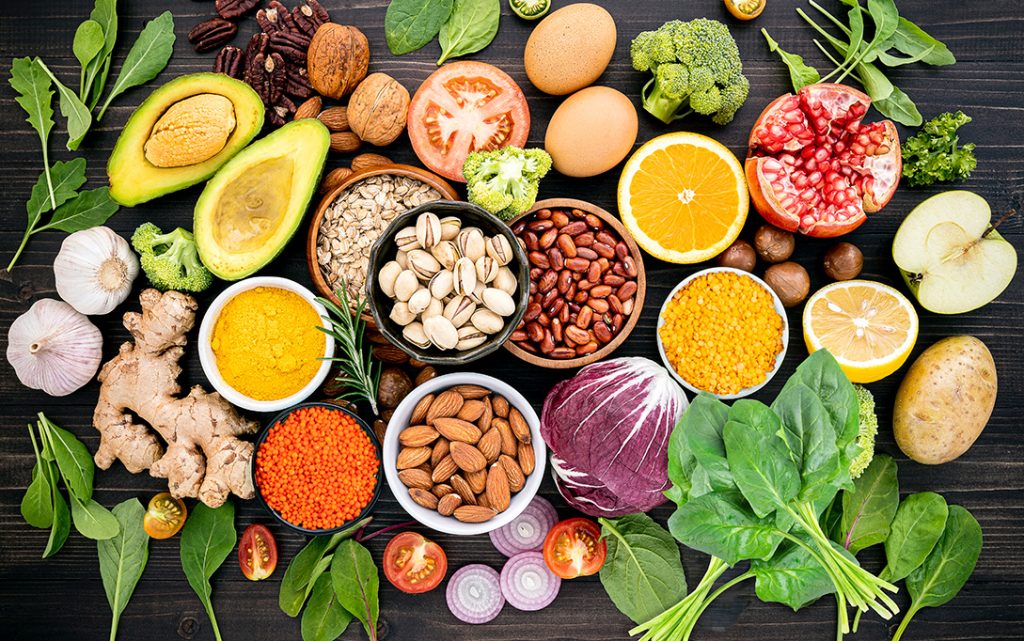
In the realm of nutrition, the term “superfood” has become a buzzword, captivating health enthusiasts and experts alike. But what exactly defines a superfood, and how can these nutrient-dense powerhouses benefit our health? What exactly is a superfood? What does it do to our bodies? What are the different types of superfoods?
This blog post seeks to demystify the concept of superfoods, highlighting their diverse types, extensive benefits, and providing practical insights on how to seamlessly integrate them into our diet.
What is a Superfood?
Superfoods are natural, unprocessed foods that boast an exceptionally high nutritional density. They are rich sources of essential vitamins, minerals, antioxidants, and other bioactive compounds that contribute to overall well-being. While there isn’t a strict scientific definition for superfoods, they are typically plant-based, whole foods that offer a remarkable concentration of health-promoting nutrients.
Types of Superfoods:
Leafy Greens and Cruciferous Vegetables: Leafy greens like spinach, kale, and collard greens, along with cruciferous vegetables such as broccoli and Brussels sprouts, are packed with vitamins, minerals, and phytochemicals that support immune function and promote detoxification.
Berries and Dark-Colored Fruits: Blueberries, blackberries, and pomegranates are bursting with antioxidants like anthocyanins and vitamin C, which combat oxidative stress and promote heart health.
Nuts and Seeds: Almonds, chia seeds, and flaxseeds are rich in healthy fats, fibre, and essential nutrients, contributing to improved cholesterol levels and sustained energy.
Turmeric and Ginger: These aromatic spices contain powerful anti-inflammatory compounds like curcumin and gingerol, providing relief from inflammation and boosting the immune system.
Legumes and Pulses: Lentils, chickpeas, and mung beans are excellent sources of plant-based protein, fiber, and various vitamins, making them essential for a balanced diet.
Whole Grains: Quinoa, amaranth, and brown rice offer a range of nutrients, including fiber, protein, and essential minerals, supporting digestive health and sustained energy.
Benefits of Superfoods:
Enhanced Nutritional Intake: Superfoods provide a concentrated source of essential nutrients, filling potential gaps in a balanced diet.
Improved Immunity: The abundance of vitamins, minerals, and antioxidants in superfoods fortifies the immune system, safeguarding against infections and illnesses.
Reduced Inflammation: Many superfoods, like turmeric and fatty fish, contain anti-inflammatory compounds that mitigate chronic inflammation, a root cause of numerous diseases.
Heart Health Support: Superfoods like berries, nuts, and oats contribute to heart health by reducing cholesterol levels, managing blood pressure, and improving overall cardiovascular function.
Incorporating Superfoods into your diet:
Traditional Indian Recipes: Many Indian dishes incorporate superfoods naturally, such as turmeric in curries, spinach in saag, and lentils in dals.
Smoothies and Bowls: Create nutrient-dense smoothies with berries, seeds, and leafy greens, or prepare hearty grain bowls with a variety of superfood ingredients.
Herbal Teas and Infusions: Ginger, tulsi, and cinnamon infusions provide a warm and comforting way to consume superfoods regularly.
Snacks and Side Dishes: Sprinkle flaxseeds on yogurt, munch on roasted chickpeas, or prepare trail mix with nuts and dried fruits for wholesome snacking.
Superfoods offer a treasure trove of nutrition, elevating our health and well-being. By incorporating these natural powerhouses into a healthy diet, we can embark on a journey towards enhanced vitality, resilience, and overall vitality. So, let’s embrace the superfood revolution and savour the health benefits they bring to our lives!
And remember whatever the superfoods: whether it is organic fruits and vegetables, organic sprouts and pulses, whole grains or pulses, you can get everything you need on Happy Harvest Farms!